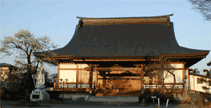  |
Lesson 7: I go to school.
Click here for the kana version.
|
This lesson is about direction verbs. For our purposes, a direction verb is one that indicates movement to or from somewhere. In example: I go to the store. In other words, you are moving from somewhere to the store. In order to say "to
the store" you have to use the particle ni
or e. Ni and e mean 'to' when they come before
a direction verb. (Note that the particle e is only pronounced as e;
it is spelled with the character he.) |
|||||||||||||||||
|
Examples: ikimasu |
to go |
||||||||||||||||
|
The sentence pattern for direction verbs is as follows: location e/ni direction verb
:=: direction verb to location |
|||||||||||||||||
|
Examples: Gakkou
ni ikimasu. |
Go
to school. |
||||||||||||||||
|
It should be remembered that the response to "will you come?" should be "I will go." or "I won't go." because the two people speaking are assumed to be in different locations. One can then add time to indicate when one will go or come. This is generally more useful information that "I will go." Recall that the basic Japanese sentence structure is TTOPV. This stands for Topic/Time Object Place Verb. Our sentences will use T/TPV as there is no object in these sentences. Examples:
|
|||||||||||||||||
| Note
that the above examples are all in future tense in English. In
Japanese, there is no difference between future tense and present tense. |
|||||||||||||||||
|
Lesson 7 Vocabulary: ikimasu |
to go |
||||||||||||||||